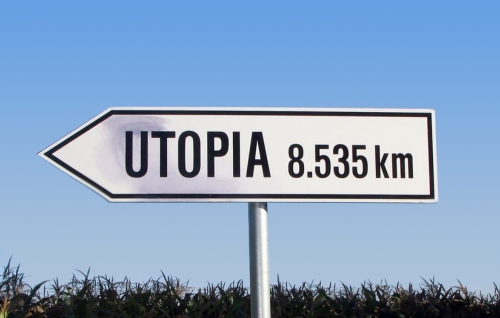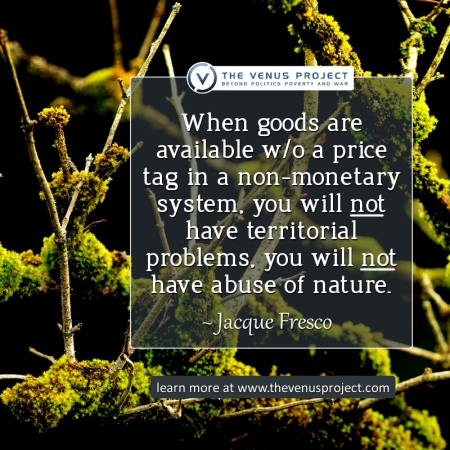
by Enrique Lescure
Introduction
As the Schengen Treaty crumbles, thousands of refugees are entering Europe every week in an uncontrolled, unmanaged way. Most who are entering are desperate people looking for a better life, but also people who are not really desperate and some who even harbour a desire to act as a subversive force in the communities they end up in.
Many of these immigrants end up in areas in the periphery of major European cities, where they are living amongst people from the same cultural region. Today, major western European cities are multi-cultural to a large extent, and most of it has been working quite well. There have however been dormant tensions between neighbourhoods dominated by people descended from islamic countries, and the nearby communities.
In France, the Netherlands, Germany, the United Kingdom, Denmark, Norway and Sweden, there have been numerous allegations from both representatives of other communities as well as representatives of the muslim community. While the former claim that the muslims demand special exclusive treatment and want Islam to be pre-dominant in suburbs characterised by large muslim minorities, the latter are feeling targeted by media and by the surrounding communities, which they accuse for Islamophobia and discrimination.
There is also a growing tendency from both sides to generalise and simplify. A problem is however that there’s a tendency from the formal authorities in many European countries to simplify as well.
Ultimately, CounterJihad is arising from a lot of factors both connected to wider socio-economic trends and to policy decisions in regards to Integration and the War on Terror (and non-decisions as well). Given that, when growing, CounterJihad starts to affect the development in a regressive manner, and even if contra-jihadists may see it in another way, their strategy will serve to worsen the problem.

A dark vision
Somewhere in Western Europe, 2030’s:
The government tried to regain control over the situation, but the spiral of violence crippled the supply lines of the capital city. The military, a shell of its former self, crumbled due to the stress of both trying to keep pacified areas peaceful and to retake lost areas. There had been three factions, the government which had tried to separate the fighting militias, the jihadists who originally had been a small force but now had thousands of fighters, drawn from sub-urban youth feeling a need to defend their communities, and finally the counter-jihadists, who ranged from people having been forced by circumstances to join them to full-out Neo-Nazis.
The government would still exist formally after the capitol fell. It fled to a minor provincial city. The capitol, however, was in the hands of the warring factions. Now they were two, but soon they became hundreds, as alliances broke and shifted. Some of the larger groups tried to reach an accommodation to end the fighting, but the cease-fire was continuously broken by minor groups, either because the trade of weapons, drugs and shortage goods had become lucrative, or because they followed their apocalyptic, utopian visions to the letter.
Or because they consisted of lots of bored young men.
As the violence faded, ethnic and sectarian cleansings had been committed by both sides. Distrust ran deep, and what emerged was a fragmented, disillusioned society struggling with keeping its own peace. Intra-European refugees fled across the EU, as well as militia groups, destabilising more and more areas.
Large parts of Europe were rapidly being balkanized.
TL;DR notes
- The growth of muslim minorities in Europe is a relatively recent phenomenon, and driven by different factors depending on which country we are looking at at which time in history.
- Following 9/11 and the initiation of the War on Terror, the western countries agreed on a media strategy aiming to separate militant jihadis from moderate islamists and the main muslim community.
- This also meant a strategy where Islam was to be portrayed in a neutral or positive light in western countries, to reduce the risk of race riots which could fuel jihadism.
- CounterJihad originally can be said to be an off-shot of Neo-conservatism which seeked to portray the world in Manichean terms as a struggle between the West and Islam, probably mostly out of boredom since the fall of the Soviet Union.
- When CounterJihad started to emerge in Europe, around 2006, it started to gradually morph into what could be described as a fascist movement.
- The problems with the CounterJihad ideology is that it builds on the collectivization of all muslims into a sort of Hive Mind hell-bent on destroying European culture and traditions. This means de-humanization of tens of millions of European citizens, and the logic of CounterJihad doesn’t stop with a ban of Halal or no Minarets, but would – if taken to its logical conclusion – necessarily imply the deportation or the genocide of Europe’s muslim minorities.
- Jihadists like the Islamic State are searching for opportunities to increase their support base amongst the muslims of Europe. That is why one of their aims is to conduct attacks on European soil in order to strengthen CounterJihad and other similar movements.
- The best long-term strategy would be if European governments primarily sought to realise that muslims are individuals too, and that it is not necessarily so that muslim organisations are representing all muslims in neighbourhoods.

Islamic communities in Europe
Even though Islam as a religion has a long history on the European continent, it has mostly existed continuous muslim communities (and even nations) in the south-eastern corner of Europe. Scholars often bring up the existence of an Islamic civilization on the Iberian peninsula for over 700 years (711 – 1492), but most traces of that culture were wiped out (or infused into Spanish culture) by the middle 17th century.
The Balkans under Ottoman domination were largely isolated from the rest of Europe, even after the partial collapse of the Empire in 1912-1913. While there have always been individual muslims in European societies, they have most often been diplomatic envoys, traders, travellers or convertites (often associated to University communities and choosing intellectual and mystical Islamic teachings like Sufiism).
On the British isles, the first islamic communities started to emerge during the 1930’s from then British India. In most of the rest of Europe, migration started during the 1960’s and 1970’s, first of labour and then of refugees from Palestine, Iraq, Iran, Algeria, former Yugoslavia, Afghanistan, Somalia and now most recently Syria.
It can be argued that Modernist architecture partially is to blame for the segregation between people descended from the Islamic world, and the native Europeans. By building cities in a rational manner with different housing for different income percentiles, and concentrating cheap housing in areas adjacent to the capitol or to industrial cities, it created a mental and often geographical separation between income groups. When immigrants, and then especially refugees, are settled inside societies where they should acclimatise, they generally end up in the cheapest and most remote housing units.
Since the 1990’s, Europe is entering the fourth phase of the industrial revolution, meaning a reduction of labour, off-shoring labour to poor countries and the ascent of Robotics. This means that low-skilled jobs are becoming increasingly scarce and fewer labour hours are available. While during the late 1940’s if you had two hands, you’ve only got yourself to blame if you were unemployed, today the situation becomes far more complex.
It is not a surprise that refugees, especially in countries like France and Sweden, which lack an established muslim middle class (like it exists in the United Kingdom and to a lesser extent Germany) end up in poverty, dependency and unemployment. Since employment has been a (if not the) traditional way of being introduced to western culture, it has left large, increasingly concentrated communities in a state of Limbo where the two ways they have to assert their identities is to look inward and backward, towards the regions they fled from originally.
Thus, many of these neighbourhoods have gradually and in an emergent manner taken on many of the cultural traits and customs of the original countries of the immigrants. It cannot be denied that a large part of this is consisting of what can be termed honour culture. While honour culture still exists within western cultures (it should be seen as a spectrum, not as an on-off switch), there is a difference between considering someone a “slut” and of it being perceived as an imperative for the family to punish the individual who has engaged in sexual and other behaviour that is unwanted by the community.
Even though honour killings are very rare in relationship to the size of the muslim population in Europe, the behaviour is seen as so alien and weird to most North-west Europeans that they cannot grasp it intellectually. Controlling the sexual development of adolescents (and especially females) is seen as important within traditional islamic communities heralding from the Arab World, South Asia and East Africa. From their point of view, North-west European culture is seen as monstrous, and they wonder whether European parents really love or care about their children, who are gradually left to figure out that with sex and relationships themselves.
It can be said to be a case of Blue and Orange morality.

11 Sep 2001 — President George W. Bush addresses the nation from the Oval Office of the White House after three planes commandeered by unknown hijackers slammed into the Pentagon and New York’s World Trade Center September 11, 2001. Bush returned to the White House early this evening to address this crisis. REUTERS/Larry Downing — Image by © Reuters/CORBIS
The War on Terror and what it meant
During the 1990’s, especially the late part of the 90’s, there was a medial search for a bogeyman against the west, since Russia was down, China was not yet the world’s second largest economy and the Cold war was over. In the absence of a universal threat, media (at least here in Sweden) turned towards sensationalism. I remember personally that at least thrice a week, the Expressen newspaper – a large mainstream newspaper in Sweden – ran stories focusing on girls in the islamic world who were going to be executed for adultery or had their faces mutilated, or who had to flee.
In 1998, the Sunday Magazine of the Expressen even ran an article series on Nostradamus (which would have made History channel green with envy), claiming that Nostradamus’ prophecies may have been true. At the end, they postulated that Saddam Hussein(!) would lead the Islamic World(!!) in an invasion of the West(!!!).
This kind of sensationalism and shock value was possible in a society which was profoundly bored and hedonistic, where nothing was really serious and where xenophobic parties were minuscule (as they were in Sweden during the 90’s).
9/11 changed all that, and not necessarily in the manner that both spokesmen for islamic organisations or CounterJihadis believe.
One of the earliest aspects of the War on Terror was that it would not be a war against Islam. For all what the Anti-War left were saying during the first decade of the third millennium, there were serious attempts in western countries facing off against Salafi Jihadism to try to isolate the extremists by creating dialogues with representatives of mainstream islamic organisations and by seeking to portray Islam in a positive manner and include muslims in a positive manner.
This strategy was tactically and strategically sound. In order to reduce the threat of al-Qaeda and similar organisations, there was a need to fight the ideology behind the organisation. Moreover, it implied cooperation with allies such as Egypt, Saudi Arabia and the other Gulf States.
The problem was that the United States failed to hold a concise line in those policies.
While an argument could be made for a war against Afghanistan, the War against Saddam Hussein (and conversely, the Republic of Iraq), in retrospect lacked concise objectives and was based on a flawed analysis of reality. Those decision-makers and decision-influencers who stood close to the White House seemed to believe that the Iraqi people and the wider muslim Arab population would cheer the overthrow of the Iraqi Regime (which was completely abhorrent) and the replacement of which with a foreign occupation.
On the contrary, rather than infatuating the Arab street with love for the US, the war in Iraq developed into a bloody quagmire, an insurrection and a bloody Shia-Sunni civil war. The inclusion in the War on Terror of Iraq also created a spectre in the mind of many muslims – even those not particularly religious – that the US was at war with the entire Islamic Civilization. This was of course benefitting to the kind of militant Jihadists which the War was meant to defeat, entirely in accordance with the logic of Terrorism.
Meanwhile in the West, many conservative activists and citizens were wondering why their leaders engaged in friendly talks with leaders for islamist organisations, why they made sure to pay positive mention of Islam and established that Islam primarily was a “religion of peace”, while they could see the on-going violence in the Middle East. These citizens believed that the War on Terror was really not against Qaidist Jihadism, but actually an Islamic war against the West, and started to suspect that the western governments – especially European ones – were really duped or in cahoots with “wardrobe jihadists” (like western-based islamic movements loosely or closely aligned with Egypt’s Muslim Brotherhood).
Some of these thinkers had actually been close to the mainstream of US conservatism, especially within conservative media, but were envisioning the War on Terror in a more confrontational and adrenaline-pumping manner. One prime example was Ann Coulter.

The Rise of Counterjihad
While there had been Counterjihadi thinkers since several decades back, the ideology started to make itself noticed during the second half of the last decade. Originally largely a phenomenon within US conservatism, it spread to Europe where it had the potential for mass appeal – especially due to the existence of large, isolated and relatively impoverished muslim communities near and inside West European large cities.
Originally, CounterJihad was very much focused on Israel’s allegedly exposed situation, being a small Jewish state surrounded by muslim-majority Arab states. Israel was seen as a bulwark for western values, and for Judaism and Christianity against Islam, which was encroaching. This view had been prevalent within US Christian fundamentalism since the 1980’s, when Christian Zionism started to influence US policy makers and opinion – often with apocalyptic ideas pertaining the end of the world and the Antichrist.
During the 00’s, aspects of this eschatological and Manichean world-view started to creep into secular discussion, by expanding the good-vs-evil theme on the Middle East situation to Europe. This was easy, since the Iraq War and the War on Terror had created a situation where muslims felt increasingly marginalized and insecure, while many Westerners felt that terror attacks as those in Madrid in 2004 and in London in 2005 really meant that the governments should clamp down harder than they did.
Under this situation, right-wing populist and semi-fascist parties throughout western Europe started to focus more on Islam (it had started at earliest in The Netherlands), and on the problems of integrating muslim communities into West European culture.
What CounterJihad offered was an explanation why the War on Terror was fought so “half-heartedly” and why Islamic organisations in the West gained access to share their discourses with the governments. The explanation however was nightmarish.
A summarization of CounterJihadism can be laid out like this.
- Islam is really a totalitarian ideology aiming at world conquest.
- Muslims in Europe are actively seeking to out-grow the native population in numbers.
- When they become the majority, they will take over and install Islamic Republics.
- Muslims are waging a low-intense race war against Native Europeans.
- Muslims are always committing Taqiyya (here defined as lying about their intent).
Note the absence of any form of theory regarding how society should be structured, what positive values we should move towards as a society, how to include muslims in society or how to reduce the power of religion. CounterJihadism as an ideological umbrella (most often encompassing individuals and groups of semi-authoritarian right-wing varieties) is purely a reactive force, and doesn’t have any positive or self-defining features (Breivik’s 2083 manifesto was the closest attempt at making one, but the future society it envisioned was one where European states tried to control female reproductive power in order to restore birth rates to compete with Islamic countries).
If we would assume that this ideological view on the world is correct (entertain the thought for a moment), then it would mean that every muslim is not only a fifth columnist, but also a part of a hostile organism aiming to take over Europe and destroy its heritage. No matter what a muslim is saying or doing, they may be lying and really harbour an agenda to destroy Europe.
The CounterJihad proposals (no dialogue, no minarets, no mosques, increased repression of the muslim minorities) would necessarily provoke the kind of reactions that the CounterJihadists claim are innate within Islam. In short, the support for the Islamic State and al Qaeda would increase a hundred-fold would CounterJihadists have it their way. This would in turn lead to more militant counter-reactions from CounterJihadist political leaders, furthering separating the muslim minorities from the host societies and eventually leading either to expulsion, genocide or civil war.
Thus, CounterJihad proponents may unwittingly contribute to the creation of the reality that they claim to fear.

What future do we want?
Jihadism is one of the world’s most dangerous ideologies, derived from the most regressive features and aspects of current Islamic Civilization. Hopefully, the ascent of the Islamic State and its inevitable downfall will make the current generation of the Islamic world to question their own values and look inward. At least, it can disillusion them maybe enough so they find ways to create a future derived from the experiences of the previous mistakes.
There are obvious social and ideological problems in the Islamic world, and especially in the Middle East and northern Africa parts of it. Problems which makes adaptions to a post-feudal society difficult, and which leads to the logic that fuelled the Lebanese, Iraqi and Syrian civil wars.
These problems can be said to be:
- Family relationships largely based around dominance and patriarchy-based hierarchy.
- Male insecurity and a need to confront rather than to talk.
- A view on dialogue and negotiations as a sign of weakness.
- A lack of trust.
It is not up to the Western (global) civilization to define what the future Islamic civilization should be like, especially not as the Western civilization itself has (other) problems with its identity and structure and would need to transcend itself as well. However, this does definetly not mean that the Islamic civilization doesn’t need to transcend (and to be frank, the Islamic State – how disgusting it now is – is an attempt to deal with the self-contradictions of the Islamic world and its fears, so there is a soul-searching happening).
All this does not mean that CounterJihad is not a dangerous ideology. In fact, just like Marxism-Leninism of the Stalinist variety and National Socialism depended on one another, we are seeing a situation emerge where CounterJihadism and Salafi Jihadism have come to strengthen and confirm one another. They are believing that they are looking at another, but are truly just looking themselves in a mirror.
Moreover, CounterJihadism will add fuel to the fervour that creates abominations such as The Islamic State. A genocide or expulsion of muslims from Western Europe will most likely definitely lead to the preservation of the traits of Islamic culture that the CounterJihadists loathe and fear, and there will be a cold war between Europe and the Islamic world for generations to come.
CounterJihad is finally a complete waste of time and energy.
Time and energy which should be used to create a Life-positive civilization, a new culture which would transcend both the current Western and Islamic civilizations, and focusing on creating conscious and secure individuals who can be able to both reach for the stars and safeguard life on Earth.
Not all human beings have the same potential, but all human beings have a highest potential, and what we must seek to do if we see cultures or tendencies that are destructive or regressive emerge, is to seek a dialogue and try to give them a positive push.
That is why it is probably a flawed strategy by western authorities to coronate representatives of moderate islamist organisations as representatives of “the muslim community”. The muslim community, like all communities, consist of individuals with different aspirations, opinions and fears. Organisations with connections to the Muslim Brotherhood do however have an interest in strengthening aspects of muslim identity which can make the process of integration and transcendence slower and more painful.






































































